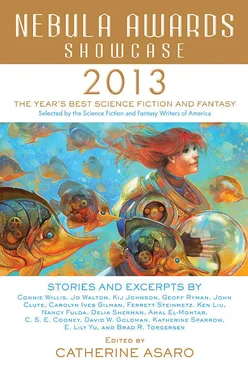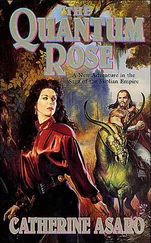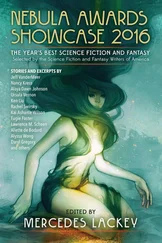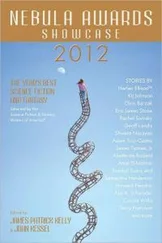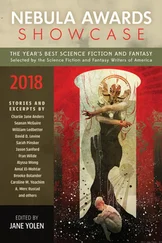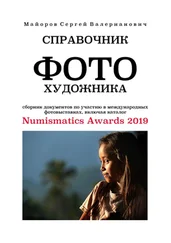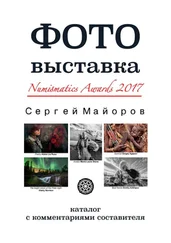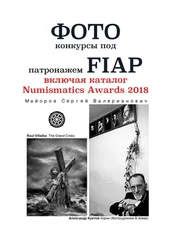* * *
Delilah was out in the hall, on her knees next to her picket sign, crossing out the word “man” in “Spokesman.”
“The Feminists for a Fair Language are here,” she said disgustedly. “They’ve got a court order.” She wrote “person” above the crossed-out “man.” “A court order! Can you believe that? I mean, what’s happening to our right to freedom of speech?”
“You misspelled ‘person,’” I said.
THE MIGRATORY PATTERN OF DANCERS
Katherine Sparrow
The inexorable pull to move south grows. The sun hums to me all day long that it’s time to go, go, go. The night sky is even more persistent—every constellation in the big Montana sky makes arrows pointing south. My appetite increases and I develop a layer of fat on my belly. My senses grow more intricate—smells carry layers of meaning, gnats and mosquitoes become visible everywhere I look, and the normal sounds of human civilization hurt my ears with all their chaos.
And now my eyes have changed. The cornea and pupil widen so that the white is barely visible. A mercy that the genetic modifications left me normal eyes for summer and winter, but when it changes, it is unsettling for everyone. My vision increases three-fold. It is the last sign that it is time.
“Your eyes look funny,” Marion says. My wife drops her fork onto her plate and starts to cry.
This is another sign, as real and inevitable as all the others.
“Josiah, don’t go this time. Stay here. Stay safe. We’ll manage, somehow.” She cries harder. Marion is beautiful when she cries. She breaks my heart every time. “Why won’t they ever leave you alone?”
We’ve been avoiding this for the last month as though time was not passing—as though summer was not heading toward fall. I don’t know what to say to her. I never know what to say.
“I’ll be leaving tomorrow morning.” I reach out for her hand, but she pulls away from me. She doesn’t want to touch me, to be any more vulnerable than I have already made her. Later there will be an intensity burning in her as she takes me into our room and undresses me, touches every part of my body as though there will be a test later and she must memorize it all. This too is another one of the signs.
* * *
Marion drives our old griesel out to a lonely stretch of road in Glacier National Park. She doesn’t say goodbye to me, but holds me tight and then lets me go. Despite her words, she and I both know what I will do, if I have to. There are three other men waiting on the road.
“Good summer?” Scotty asks.
“Yep,” I say. “Hot enough for you?”
“Yep.”
There’s Keith who’s twenty-eight, the youngest and darkest skinned of us—he’s mixed; Scotty, gay, thirty-seven, and a beast of a rider; and Hector, forty-four, Mexican but from the US. He doesn’t speak Spanish but his wife and kids do. We’re a strange migrating flock, not much in common, nothing like the huge numbers of wild birds who used to travel across the US and wore a monotony of feathers on their bodies. But once you see us dance, then you know we belong together.
“How you been, Josiah?” Hector asks. I feel his eyes looking me over, wondering about me now that I’m the oldest: now that Siv’s dead.
“Ready to ride.” Christ, I’m only fifty-six.
“Any one seen the new guy yet?” Keith asks.
Silence. It had been a good seven years without any casualties. Fourteen migrations without any big accidents: a stretch so long I think we all forgot what could happen. No one noticed Siv getting older. He didn’t show any weakness, not up until the very end. And now we had a new guy coming on.
Our Sponsor arrives in a long black four door car spewing enough exhaust to make my eyes water. He steps out wearing sunglasses and skin stretched so tight over his face that he looks like he might pop. All the immortals look like that. Even though they have enough money to buy life, they have that look to them like it’s been a long time since they’ve lived at all. We smile at him, each of us thinking, I reckon, about the last time we saw him.
He was yelling and calling us murderers as we all stood around the broken body of Siv. He threatened us with life in prison, even though we all knew he couldn’t do a damn thing about it.
Now he’s showing off his white as paint teeth and looking at us like we are racing horses: profitable flesh. He frowns as he looks at me. Other doors on his car open and men that look like him, but with cheaper clothing, get out. You can’t get them to talk to you, I’ve tried.
The new rider comes out of the car and blinks like he’s just waking up. It takes a while to get used to the eyes. He’s too skinny—someone should have told him to fatten up—but otherwise he looks tough enough. He has thick black hair, olive skin, and a five o’clock shadow even though it’s only noon. He looks us over. He smiles at Keith, who must be the leader, I can see him thinking, because he’s the youngest and strongest. Keith smiles back enigmatically.
“This is Theo Anders, boys, and he’s going to make me proud!” The Sponsor tries to act like one of the good old boys, but there’s a billion dollars and ownership issues between us.
A trailer pulls up with our bicycles, and Scotty runs over to them. He’s our resident gearhound. Our Sponsor chats him up about all the new components on his bike.
“No way! Awesome!” he says.
The new guy stands near us nervously. For him it’s the most important day of his life so far. The first day of the migration. For the rest of us, it’s not so special.
“Hey Theo, I’m Josiah,” I say. “Welcome to the migration.” I introduce him to Keith and Hector. “A man’s first migration is the most dangerous,” I say. “Just like with real birds. You won’t know the route, the dances, or how to pace yourself. All kinds of changes will be coming on inside of you all the while you’re expected to keep pedaling. Just don’t do anything stupid.”
“I had the operation three months ago. I’ve adjusted to the changes. The Sponsor told me everything I need to know,” he says.
“That’s what he’ll have told you,” I point my thumb at our owner, “but it’s not true. It takes awhile for it all to settle in. They never know when they’ll need a new rider, so there’s never enough time to change.”
“He said—”
Hector steps toward the fledgling and says quiet enough that only we can hear, “He only cares about getting you migrating as soon as possible. He doesn’t care about you.” Hector shakes his head and gives Keith and I a look like can you believe this kid? Nevermind that he was just as ignorant when he came on.
Theo’s face turns a dirty pink. “You saying something bad about our Sponsor? That’s against contract clause twelve B.” His voice is too loud.
“Calm down,” I tell him. “We’re all friends here.” But his words make me uneasy. Our owner has tried to get a man on the inside for years. Someone who will tell the truth of what actually happens on our migration. Maybe he’s finally found one.
Theo eyes me again, and I can see he thinks I’m worthless. America never had any use for the old. I could tell him I’m going to be more useful to him than he can know, but I don’t. Let him learn.
We grab our bikes with fat panniers loaded up with MRE’s, protein bars, and watergel. The first day of our ride we’re not riding hard: we’re just getting onto our bikes, checking out the upgrades, and learning to ride again. It’s a relief to get on the road and get moving. Tonight will be the first time in a week any of us will be able to sleep. When the change comes there’s nothing for it but to start moving. That’s what birds always did, and with how they modified us, we’re no different. The bikes are custom made for each of us, and we get a new bike every migration.
Читать дальше
